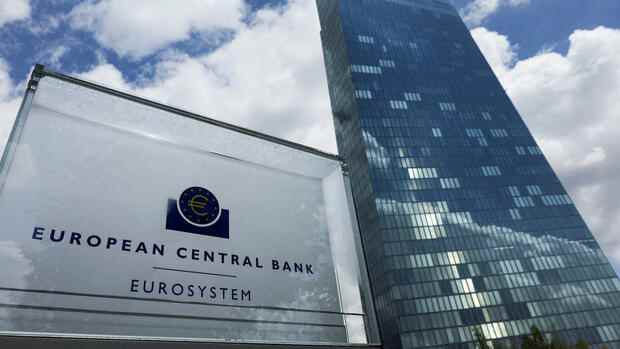Berlin, Frankfurt, Brussels The relief packages of the European governments against the high energy prices are increasingly met with criticism. Economists warn that government spending in the billions is making it more difficult for the European Central Bank (ECB) to fight high inflation. “That’s not good coordination of monetary and fiscal policy,” says Jeromin Zettelmeyer, director of the Bruegel Institute in Brussels. “The relief packages are forcing the central banks to raise interest rates more than they would otherwise have had to.”
The problem: while the central bank is trying to tighten money in the fight against inflation, governments are constantly making more money. According to Bruegel, EU governments have so far announced energy aid worth 573 billion euros. These include measures such as the German “double boom” of 200 billion euros, which are designed to last several years.
Even among finance ministers there is growing concern that the bailout could exacerbate inflation. At the Eurogroup meeting on Monday, several participants reiterated that the aid must be targeted and temporary. Dutch Finance Minister Sigrid Kaag concedes: “Our relief packages, including the Dutch one, risk increasing inflationary pressures.”
EU Commission Vice-Valdis Dombrovskis said the Commission had reviewed the national relief packages. “Unfortunately, most are not targeted,” he said. Now it is being considered what could be improved in the 2023 households. “It is important that fiscal policy does not contradict the policy of the ECB.” Lars Feld, independent chief advisor to Federal Finance Minister Christian Lindner (FDP), also sees the risk that measures such as the energy price brakes could fuel inflation. After all, they enabled consumers to consume more.
Top jobs of the day
Find the best jobs now and
be notified by email.
If supply continues to be restricted, this could also affect the prices of goods and services. “This can push up core inflation,” Feld warned.
Central bankers are also critical of fiscal policy
Bruegel boss Zettelmeyer pointed out that the relief packages have so far been neither targeted nor temporary. The aid for the industry would at least have a supply effect. “To the extent that they save companies from bankruptcy, they prevent supply shortages. That helps against inflation.” What matters, however, is how much money ends up in private households. “I see the danger that the energy aid will not dampen inflation, but increase demand and thus promote inflation.”
>> Read here: Consumer sentiment is still in the doldrums – but things are looking up
In the ECB, the subsidies are discussed differently. On the one hand, there is the position that these can slow down the rise in energy prices and thus mechanically depress inflation. France, for example, introduced price caps for electricity and gas as early as 2021. At 7.1 percent, the inflation rate is now the lowest in the euro zone. ECB Vice President Luis de Guindos believes that temporary, targeted aid would reduce the risk of a wage-price spiral.
Other central bankers point out that fiscal policy is already very expansive. They also criticize that the measures are not only aimed at people with low incomes and that, depending on how they are designed, they could set false incentives if they promote energy consumption. ECB President Christine Lagarde recently stressed that it will all depend on how the measures are designed and what kind of transfers are made and how they are financed.
criticism of tax cuts
Alexander Kriwoluzky, head of the macroeconomics department at the German Institute for Economic Research (DIW), points out that governments have little choice but to help the companies and households affected. He advocates taking a differentiated look at the various aid measures.
The price brake for gas or electricity, as planned by the federal government, would not fuel private household consumption. Rather, it would merely allow current levels of consumption to be maintained. The situation is different with a large-scale tax cut.
The traffic light has reduced sales tax on gas for the next year and a half. At the same time, she wants to reduce cold progression, i.e. creeping tax increases due to inflation. This reduces the tax burden in absolute terms, especially for medium and high earners. These, in turn, often have enough reserves to stabilize their consumption despite the high energy prices.
More: France’s finance minister calls for a tough EU response to US subsidies
